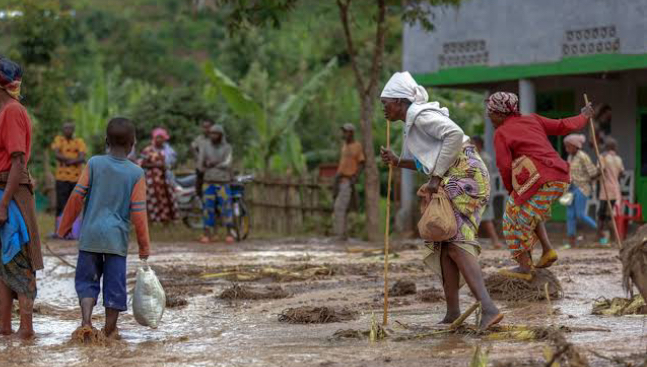Last weekend, tense conversations were happening between countries. The topic? A fund for loss and damages.The term “loss and damages” refers to the unavoidable and irreparable consequences of the climate crisis:These severe repercussions are mostly felt by vulnerable, lower-income countries. Sadly, by 2030, it’s expected that the cost of these consequences will reach trillions of dollars every year. While African countries and other low income countries feel the grave effects of the climate crisis, other high-income countries like the United States haven’t had nearly the same impact. Africa has so far contributed less than 1% of the total emitted global greenhouse gasses yet continues to suffer considerable economic and non economic climate losses.

The creation of a fund was a main topic of discussion at last year’s international climate conference,COP27. It was approved at the very last minute, right as the conference was concluding. It’s heartbreaking how one year later, it hasn’t actually gone into effect.Over the weekend of November 4th and 5th, the UN committee tasked with setting up the fund finally agreed to a design. However, neither high-income nor low-income countries got everything they wanted. For one, the fund will be administered by the World Bank on an interim basis (only a short time until someone or something more permanent is found), a concession by everyone. The U.S. wanted the fund to permanently be controlled by the World Bank, an entity that may give too much control to the United States and doesn’t act independently.
Another huge compromise in the agreement is that the fund ‘urges’ high-income countries to contribute to it and also “invites” contributions from other countries and funding sources like carbon markets. We worry that these carbon markets could be another point for neocolonialism and worsening debts on poorer countries. The undeniable fact is for fair and equal climate justice, countries who have had the most climate impact in terms of greenhouse gas emissions should be legally obligated to contribute to the fund. But as expected, the U.S. with other rich countries fought hard against this, making it clear that any funding would be voluntary. Dictating that the fund must also receive money from the private sector, as well. Egypt, which represented African countries on the committee, also raised concerns in the meeting after the deal was agreed, noting that some of our key demands had not been met such as agreeing the size of the fund or clearer obligations for rich nations to contribute.
This shows that we have a tough road ahead as African climate activists. We should be ready and knowledgeable at future discussions, making our concerns clear. Ensuring we fight and demand for climate finance for both loss and damage, and adaptation schemes while referring to clear proof. We have to fight back diligently, keeping our people and belonging at heart. We have the right to have safe and habitable communities, to have places we call home, to maintain our rich cultures; but the climate injustice has steadily robbed us of this. We are the pioneers of bringing positive change in our homesteads. This cannot not be better advocated for except by Africans themselves. We are the true stories of the climate crisis yet our voices barely reach the internal decision tables. We are least represented in decisions that affect our daily lives, how could they possibly fight a fair and good fight if we are in different climate boats. To them its financial implications whereas to us it is a life and death matter for our people. This is Our Planet, Our Fight and Our Future at stake.
